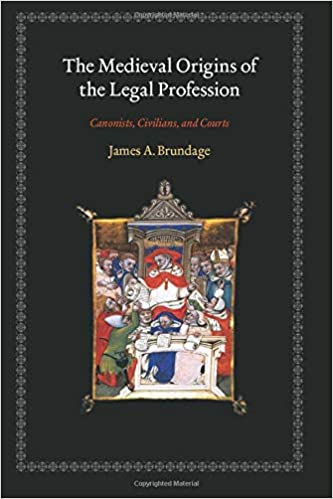Lusitania Litigation and the Will of Frances Fowles –
Part VIIIF
Michael Sean Quinn, Ph.D., J.D.
(See below)
Frances Fowles was the wife of Charles Fowles.
They prepared wills on April 29±, 1915, couple of days before the Lusitania
sailed, and executed them on the 29th for sure. This was a day or
two before the ship left New York. It was within days torpedoed by a German
submarine and sunk. Both Fowles died.
They prepared wills on April 29±, 1915, couple of days before the Lusitania
sailed, and executed them on the 29th for sure. This was a day or
two before the ship left New York. It was within days torpedoed by a German
submarine and sunk. Both Fowles died.
Charles was a very wealthy man,
and Frances was not at all. He has two grown daughters, and between them they
had 5 children. Frances had no previous children. Charles and Frances had no
children.
and Frances was not at all. He has two grown daughters, and between them they
had 5 children. Frances had no previous children. Charles and Frances had no
children.
Charles’ will was a rather
complicated one. Frances inherited a life estate interest in a trust, in
addition a good deal of property, real and personal, and a bit of money. The daughters also inherited a good deal of
money straight away, and upon her death one half of the remainder of the trust
left to Frances during her lie time, the other half going to whomsoever she designated.
Under the pre-sailing will that person was to her sister Dorothy Elizabeth
Smith and her sister’s son, Kenneth, who—I conjecture—may have been a special
needs child, in 1915.
complicated one. Frances inherited a life estate interest in a trust, in
addition a good deal of property, real and personal, and a bit of money. The daughters also inherited a good deal of
money straight away, and upon her death one half of the remainder of the trust
left to Frances during her lie time, the other half going to whomsoever she designated.
Under the pre-sailing will that person was to her sister Dorothy Elizabeth
Smith and her sister’s son, Kenneth, who—I conjecture—may have been a special
needs child, in 1915.
As one might expect, there was
vigorous litigation regarding who got what, if anything. The position of the daughters was that
Frances should get nothing, and their position fit well within traditional law,
but was more or less inconsistent with the modern, “progressive”—not to say
“realist”—conception of the law.
vigorous litigation regarding who got what, if anything. The position of the daughters was that
Frances should get nothing, and their position fit well within traditional law,
but was more or less inconsistent with the modern, “progressive”—not to say
“realist”—conception of the law.
Eventually, a divided New York
Court of Appeals, with three opinions, two dissenting to some degree, affirmed
the “progressive” and imaginative decision of the Surrogates’ Court
interpreting the will as written, even though that decision was reversed by the
intermediate appellate level court, one judge dissenting. This story has been told in a little more
detail in other, preceding parts of Part VIII.
Court of Appeals, with three opinions, two dissenting to some degree, affirmed
the “progressive” and imaginative decision of the Surrogates’ Court
interpreting the will as written, even though that decision was reversed by the
intermediate appellate level court, one judge dissenting. This story has been told in a little more
detail in other, preceding parts of Part VIII.
This court discusses at some length Charles’ will and the majority decision of the New York Court of Appeals written by the famous Benjamin Cardozo, probably one of the top 5-10 jurists and legal thinkers in the United States during the Twentieth Century. Smith v. Johnson, 200 A.D. 811, 194 N.Y.S. 97 (1922)
This case, pertained to the will
of Frances, more or less. The real questions before the Supreme Court—Appellate
Division, i.e., the intermediate appellate court in New York state—were several,
but the most basic was the following. Could
Dorothy recover from the estate of
Frances the amount of her
expenses in defending that estate directly and indirectly? Or were
those expenses to be charged to her personally, and—perhaps thereby—somehow
charged to the income she was to receive from the trust in which she had a life
interest as the result of the will of Frances?
of Frances, more or less. The real questions before the Supreme Court—Appellate
Division, i.e., the intermediate appellate court in New York state—were several,
but the most basic was the following. Could
Dorothy recover from the estate of
Frances the amount of her
expenses in defending that estate directly and indirectly? Or were
those expenses to be charged to her personally, and—perhaps thereby—somehow
charged to the income she was to receive from the trust in which she had a life
interest as the result of the will of Frances?
This was a complex question even
when just taken by itself.
when just taken by itself.
In thinking about this matter keep
two facts in mind. The amount of Frances estate was $300,000.00± (in 1915
dollars), and the two daughters had percentage interests in that sum.
two facts in mind. The amount of Frances estate was $300,000.00± (in 1915
dollars), and the two daughters had percentage interests in that sum.
This question was made even more complicated
by the fact that there were executors, trustees, and various lawyers, as well
as the daughters and their children. And
then made even more complicated by the fact that Charles business
associate/”partner” was playing to many roles for different interests in the
probate conflict that were potentially in conflict.
by the fact that there were executors, trustees, and various lawyers, as well
as the daughters and their children. And
then made even more complicated by the fact that Charles business
associate/”partner” was playing to many roles for different interests in the
probate conflict that were potentially in conflict.
Aside from all other things that
make this case interesting, there is also the fact (I think it’s a fact,
anyway) that the expenses at issue were
attorney fees. Maybe there were even contingency fees; the case doesn’t
say.
make this case interesting, there is also the fact (I think it’s a fact,
anyway) that the expenses at issue were
attorney fees. Maybe there were even contingency fees; the case doesn’t
say.
Naturally the daughters opposed
the idea of the estate paying these expenses on a variety of grounds,
principally that Dorothy was looking after herself and not defending the
estate. The court unanimously, after considerable discussion—some might say “gyrations”–held
that Dorothy could recover since she was indeed defending the integrity of the
estate, even though that also worked out to be in her interest.
the idea of the estate paying these expenses on a variety of grounds,
principally that Dorothy was looking after herself and not defending the
estate. The court unanimously, after considerable discussion—some might say “gyrations”–held
that Dorothy could recover since she was indeed defending the integrity of the
estate, even though that also worked out to be in her interest.
The amount of the attorney fees
was $22,000± for two attorneys in all three courts that considered Charles’
will, and these amounts were adjudged reasonable.
was $22,000± for two attorneys in all three courts that considered Charles’
will, and these amounts were adjudged reasonable.
Dorothy won. But now we arrive as what might perhaps be of
interest to us today, aside from the general love all lawyers have for the intricacies
of exquisite legal reason stretching back over the centuries of Justice Coke.
interest to us today, aside from the general love all lawyers have for the intricacies
of exquisite legal reason stretching back over the centuries of Justice Coke.
Measuring from 1915 until 2014, using
a Purchasing Power Calculator, the $300,000.00 is $7,290,000.00, and the
attorney fees of $22,000.00 are $535,000.00. This was good sized litigation.
a Purchasing Power Calculator, the $300,000.00 is $7,290,000.00, and the
attorney fees of $22,000.00 are $535,000.00. This was good sized litigation.
Michael Sean Quinn, Ph.D.,
J.D., C.P.C.U. . . .
J.D., C.P.C.U. . . .
The Law Firm of Michael Sean Quinn et
Quinn and Quinn
1300 West Lynn Street, Suite 208
Austin,
Texas 78703
Texas 78703
(512)
296-2594
296-2594
(512)
344-9466 – Fax
344-9466 – Fax





Recent Comments